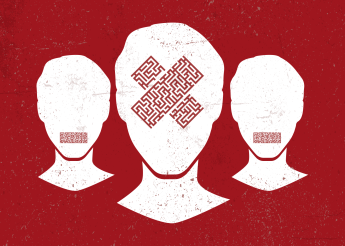PI. You’ve been working on prisons for 30 years, and France has been condemned about 15 times by the ECHR. Is history doomed to repeat itself? Are there any reasons for hope?
CR. Cynically, we could say that these condemnations show that the law can now prevail over the prison world, which wasn’t the case prior to 1990. The law is gradually taking its place and making progress, even if there’s still lots of work to be done in terms of labour law or privacy, for instance. Claire de Galembert and I coordinated an issue of the journal Droit et société that questions whether or not prison can be changed by the law. Since you ask, I remain optimistic, otherwise I wouldn’t have written an essay that suggests introducing a new field, moral sociology in prison, which analyses prison missions and not just official ones, for example, but rather the way in which they’re embodied in practices.
These missions are so contradictory that prisons can’t fulfil them, especially with so few resources. Therefore, the so-called reintegration mission—which nevertheless legitimises prison sentences—is one of those “necessary fictions” that staff can’t renounce without their work becoming meaningless.
The staff are not fooled, they are worn out. This mission is objectively residual when there are six times more supervisors than social workers, the latter of which are also involved in the open environment.
Similarly, how can we imagine preparing inmates to reintegrate into society? Through activities that are most often occupations, which are rarely aligned with prisoners’ trajectories.
Prison organization is very defensive: security is its main mission and consists of preventing escapes. Prisons are turned inwards, and the thought of leaving becomes unthinkable. We forget that 200 people are released each day. Other countries have chosen to look at the relationship between prison and society differently, to reimagine the way in which prisoners live in prison in order to help them rebuild their lives. I also mention the case of other degrading institutions that have managed to change and have even changed their name: the asylum has become a psychiatric hospital, more similar to the general hospital and open to the city. Prisons can change, provided that the institution’s essence is transformed and its organization is profoundly changed. This will only be possible if we decide to make it possible.




